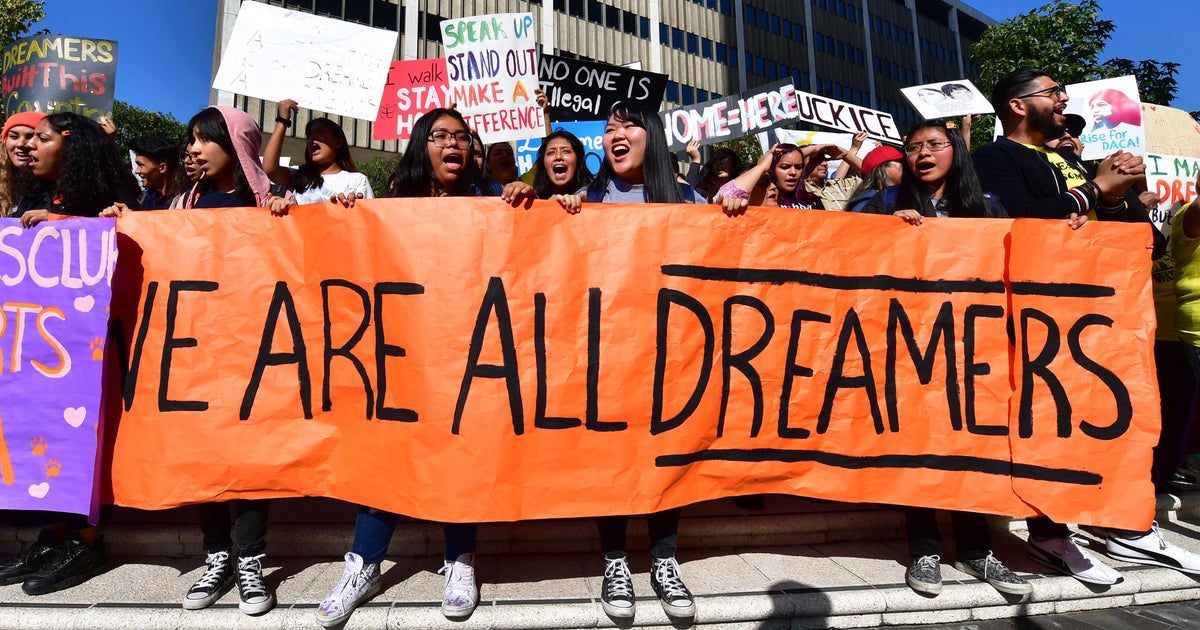Transgender advocates on the "unspeakable cruelty" of federal rule erasing health care protections
The Trump Administration's announcement last week that it would remove federal protections against health care discrimination for transgender patients hit Hyde Goltz hard.
Goltz, a 39-year-old nonbinary transgender Minnesotan, remembers navigating the health care system before those protections were adopted in 2016.
"It was the seven years saving up to be able to afford phalloplasty on insurance. It was changing jobs so that I could get health insurance that would actually cover phalloplasty. It was the three months spent day after day after day on the phone, hours on hold each time, trying to get across to people, supervisors, to tell them, this is medically necessary," Goltz said.
Goltz and others couldn't help but notice the timing of the federal government's decision, amid a global pandemic that has already cost more than 116,000 American lives, and four years to the day after dozens died in a massacre at Pulse, a gay nightclub in Orlando.
"It's unspeakable cruelty of the kind that I am having a difficult time fathoming. They must not see us as people at all," said Goltz, who is currently furloughed from their job at a funeral home. "It's a population that tends already to have such poor experiences with healthcare workers who are not always trained in a large part to deal with trans and nonbinary folks' needs."
In 2015, the National Center for Transgender Equality surveyed 28,000 transgender people about their health care experience. Nearly one in four, 23%, said they "did not see a doctor when they needed to because of fear of being mistreated as a transgender person." One in three, 33%, "reported having at least one negative (health care) experience related to being transgender" in the previous year.
A quarter of respondents said they experienced problems with insurance related to being transgender, "such as being denied coverage for care related to gender transition."
Just three days after the Trump Administration's new rules were announced, a Supreme Court decision cast doubt on the White House's interpretation of those rules, according to Mara Keisling, the founder and executive director of the National Center for Transgender Equality.
The Supreme Court found that Title VII of the Civil Rights Act of 1964, which prohibits employment discrimination "because of sex," applies to gay and transgender employees.
"It is impossible to discriminate against a person for being homosexual or transgender without discriminating against that individual based on sex," wrote Justice Neil Gorsuch in the majority opinion.
Keisling said she expects future lawsuits to seize on that line.
"The Supreme court has spoken very clearly that we are protected by sex discrimination laws. While this ruling was specifically about employment law, the logic is just absolutely clear," Keisling said.
Still, the courts move at a slow pace, and Keisling said the new rules could prove deadly.
"It is going to scare people away from getting medical treatment. It shouldn't, and we're encouraging people to not let it, but we know that it will," Keisling said.
Protections against discrimination on the basis of sex were written into the Affordable Care Act, and in 2016, the Obama administration interpreted that provision to include gender identity, which specifically addressed the transgender community.
In a Friday press release, the U.S. Department of Health and Human Services (HHS) said it is "returning to the government's interpretation of sex discrimination according to the plain meaning of the word 'sex' as male or female and as determined by biology."
In a statement to CBS News, Roger Severino, the Director of HHS Office for Civil Rights, pointed to a December 2016 injunction by a federal judge that blocked the interpretation of the law favoring protections for transgender patients.
"Under (The Emergency Medical Treatment and Labor Act), and state licensing and malpractice law, doctors are not allowed to withdraw life-saving treatments or deny emergency care for non-medical reasons. To suggest that doctors would deny life-saving care to people based on their identity is scaremongering and insulting to the medical profession," Severino said.
While some states have specific health care protections in place for transgender patients, 31 have no protections against discrimination related to private insurance for LGBTQ people, according to the nonprofit Movement Advancement Project, which tracks such policies. Nineteen states lack explicit policies mandating transgender Medicaid coverage, and 21 states do not include transgender and transition-related healthcare among state employee benefits.
Friday's regulation removed a federal "umbrella" covering states without transgender protections, according to Naomi Goldberg, Policy Research Director at the Movement Advancement Project.
"This patchwork of laws is really confusing for both employees and for employers, and having a single state of play would really be beneficial for both," Goldberg said.
Goltz said that patchwork of health care regulations in some ways leave them stranded in Minnesota, which has laws mandating health coverage for transgender patients. It's also the only midwestern state that allows residents to identify as nonbinary on their driver's licenses.
"If I were to move, it would be a minefield. It's just a minefield of a nation for people like us," said Goltz.
"Most of my life has been devoted to the fact that I created me, that I took myself apart piece by piece and examined it to see what I was, what felt right. I rebuilt myself from the pieces and sculpted myself in my own image. And now with the stroke of a pen, they're saying it doesn't matter. No, you go in this box," Goltz said.




